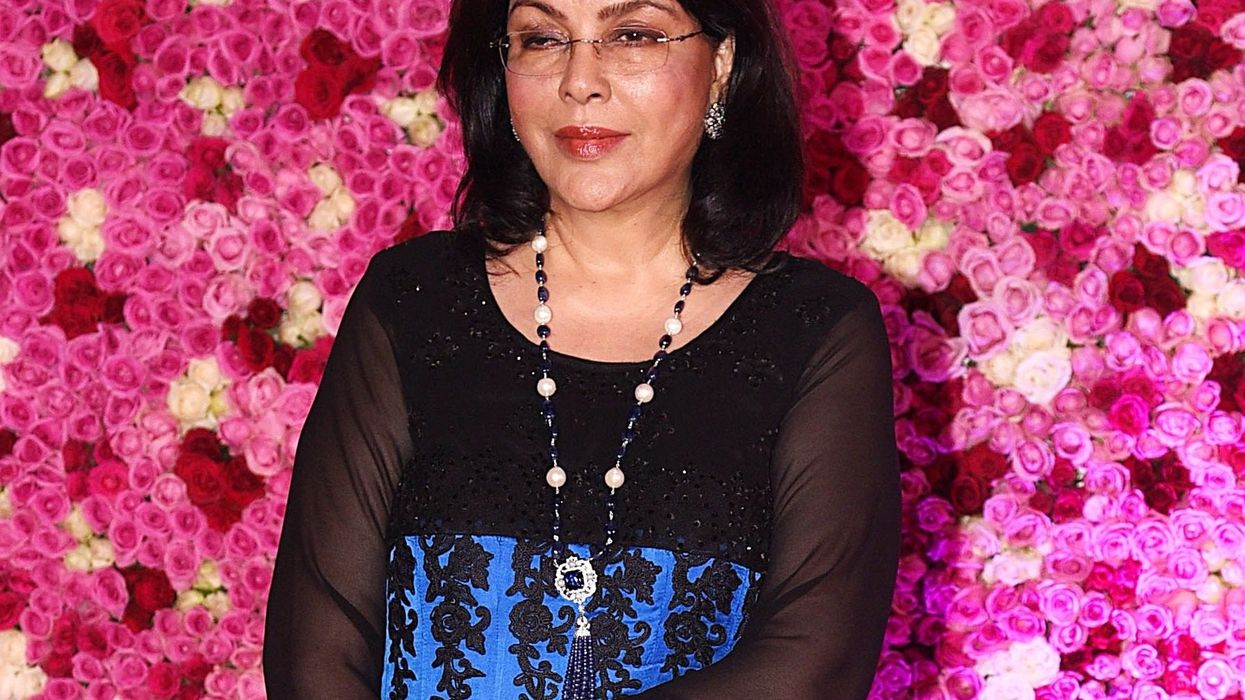Veteran actor Zeenat Aman on Friday said the late Dev Anand was "completely wrong" in assuming that she had an "inter-personal relationship" with cinema icon Raj Kapoor.
In his autobiography Romancing With Life (2007), Dev Anand had written about how he fell in love with Aman after they co-starred in the 1971 movie “Hare Rama Hare Krishna” but then Kapoor, who had offered her "Satyam Shivam Sundaram", had grown close to her.
At the ABP Ideas Of India 2023 summit, Aman said Anand might have tweaked certain things in his autobiography about her and Kapoor’s relationship.
"With all due respect, at times while we are narrating an incident or an anecdote, we put some bits to make it interesting. I don’t know what Dev sahab’s perspective was but whatever was his perspective, it was completely wrong. Now, I will write about this in my book (autobiography). I admire Dev sahab, I respect him but this was not correct,” the 71-year-old actor said.
Aman said the reason to meet the late legendary Raj Kapoor was that he had signed her for “Satyam Shivam Sundaram”.
“I would meet him as his about-to-be heroine. We never had any interpersonal relationship ever, nor during that time, or before or after, never. He was passionate about his work. I was passionate about my work. Also, he never asked me, ‘why you didn’t wear white?’. Whenever I meet him, be it on a set or at a function, and you can see the old photographs as well, I have never worn white when I met him,” she added.
Asha Parekh, who too was present at the Summit said, she is hoping Aman, who is a great writer, would pen down her autobiography soon.
The two seasoned actors also spoke about marriage.
Parekh said she is happy that she did not get married.
“Marriages are made in heaven. If it has to happen, it will but if it is not meant to happen, it will not happen. Maybe it was not written in my destiny and I think I am very happy it didn’t happen., I think you all will agree with it.”
Aman said it is tough for a woman, especially a female actor in the industry to have a successful married life. She also said women stars often make a lot of sacrifices for their personal life.
“It is better not to be married than to have a bad marriage. And many people would not know that an actor works very hard to make their marriage work.
"These girls (referring to married actresses) make so many sacrifices, people who are not in the limelight may not do it. They get married because they want to be married. I know quite a lot of girls put up with a lot of things that most girls would not put up with,” she said.
Zeenat was earlier married to actor Sanjay Khan, and then she tied the knot with actor Mazhar Khan, who died in 1998.
(PTI)




